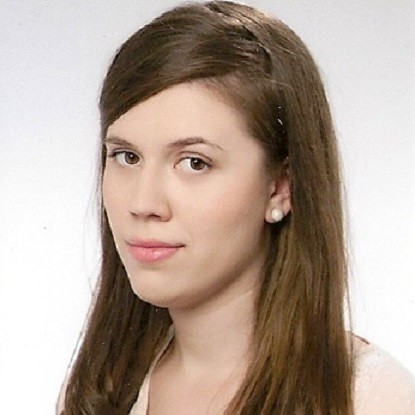From Florida to Poland - American expat's experience

Editor

From Florida to Poland - American expat's experience
related articles
What made you move to Poland? Was it a difficult process?
I initially came to Poland to do a volunteer teaching program with WorldTeach, an organization that sends volunteers all over the world to teach English. That lasted about 2 months. While I was there, I started dating someone and decided to move to Poland to see what would happen. Moving here was of course difficult due to the fact that I moved here in winter (I’m from Florida where winter doesn’t exist). But the real hard part was getting permission to live in Poland.
What part of getting your temporary residence card was the hardest?
Oh gosh. Well, firstly the office workers don’t speak English, which makes it very hard for the foreigner to be involved. So essentially you have to bring someone with you who speaks Polish so you can understand what documents you need. Then that person also has to go with you to get those documents in various places. So it’s a big time commitment and it often takes 2-3 months to sort everything out. They definitely don’t make it easy and they don’t make you feel at ease either.
You are now married to a Polish citizen – has this been helpful in any way when it comes to formalities in Poland?
It’s only helpful in the way that he can call the office if I need some clarification or go with me if it’s very important. Otherwise, it doesn’t make the formalities go away, unfortunately. You need to be married for 3 years, then you have to prove that your marriage is a true one before getting permanent residence. So, sadly, marriage to a Pole does not make things much easier, but rather you have to go through quite a number of time-consuming and frustrating formalities to even get married, making your life even harder. But it’s worth it, of course.
As an owner of your own business – you run a language school – what advice would you give to foreigners willing to open their own companies in Poland?
I would tell people that it’s definitely the way to go in terms of work in Poland. When you run your own company, you can choose your own schedule, your own clients, and of course the earnings are much higher as there is no middle-man. Of course there are some difficulties along the way and it helps tremendously to speak Polish, but overall it’s the best way to go. Just be sure to get a good accountant, preferably one who speaks English (mine doesn’t).
You are also an employer who has hired other foreigners in your business – what is your perspective on that?
There are a lot of people who’d like to teach English in Poland and a lot of people who want to learn English so it seemed like an obvious thing to me that I should somehow make the two possible for other people. Also, it’s very difficult to know the rules and how everything works in Poland unless you’re A. very enterprising and B. have lived here for a long time, so I think other foreigners appreciate the ease of having an employer who both knows the formalities and is also a foreigner like they are.
You have been a resident in Poland for a few years now, but some of your family still live in the USA. Is the process of visiting family members in Poland difficult for American citizens?
I think it depends on the kind of person you are. If you’re a good traveller and willing to accept some differences in terms of culture, food, and language, then travelling in Poland and visiting family is no big deal for Americans. The thing is that you have to go a little outside your comfort zone. I don’t live in a big city like Warsaw or Kraków so my family is a little dependent on me when they come as they don’t know where things are, don’t speak the language, and don’t drive a stick-shift. That can be hard for them as they’re a little trapped but overall they enjoy the country, the old buildings, and especially the bakeries!
Our last question has to be about the Polish language – is it necessary to speak it in order to live in Poland? Can you get by with just English on everyday basis? And how is your Polish after living here for a few years?
I lived in Poland for 3 years without speaking Polish so it’s definitely possible. So if you’re planning on living in Poland for a short time, then it’s not an issue. Most young people speak English and even would like to speak English with you (free lesson!) so you can manage well without it. However, if someone plans to live in Poland for a longer period or indefinitely like me, then you really need it. Otherwise, you’re constantly relying on other people to do things for you in public offices, at the doctor’s, at parties, etc. If you speak Polish, you’ll feel more comfortable and less left out. Trust me!
About my Polish, I’d say it’s at a conversational level. For sure I make a lot of mistakes and there’s a lot I can’t express, but I do my best to make conversation and if there’s something I can’t understand then there’s always my husband, a friend, or Google translate :)
Thank you Leah for sharing with us!
the story of

Leah Morawiec
Leah Morawiec is an American originally from Orlando, Florida, now living in Gliwice in Poland. She teaches English in her own company and runs a blog called Polonization about her experience as an expat.












